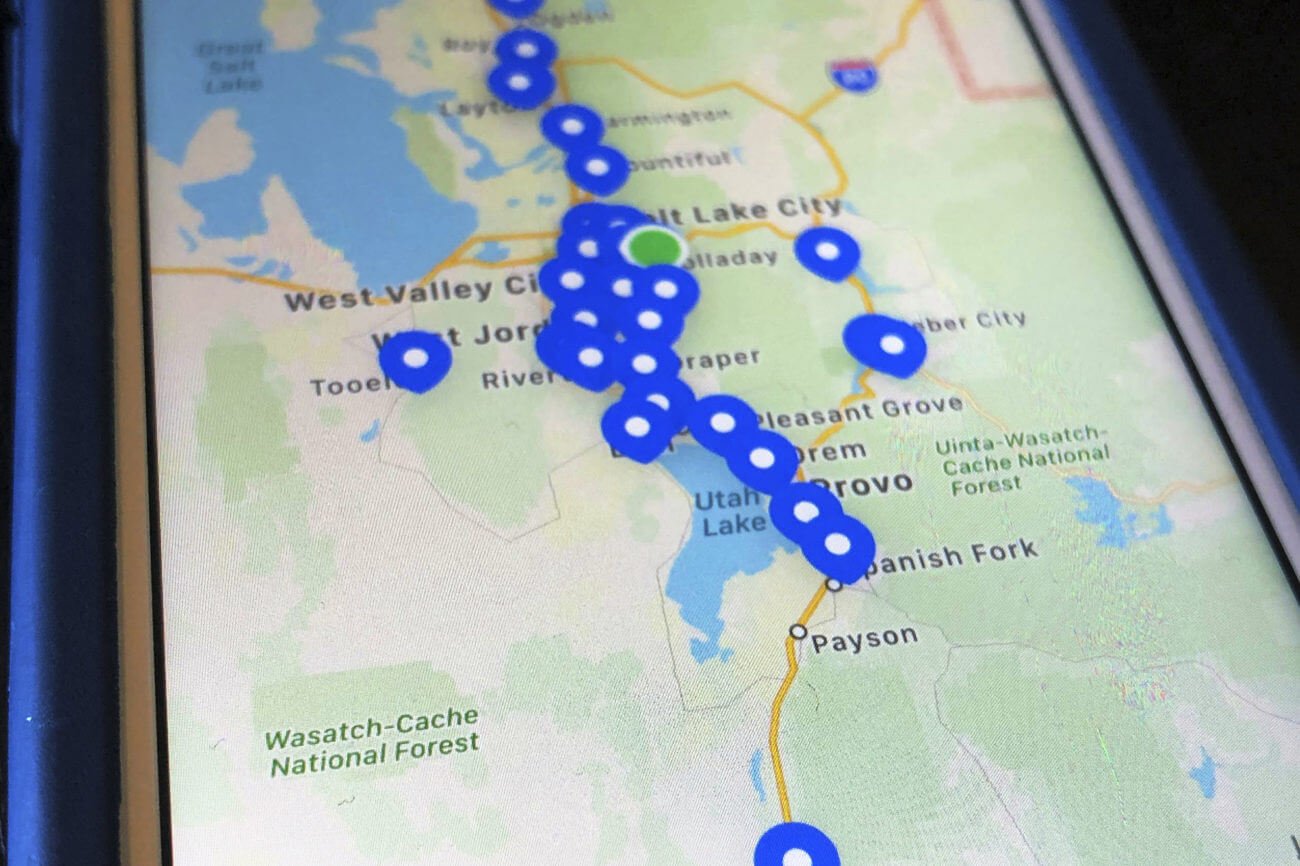
Contact tracing has been heralded as one of the best ways to combat coronavirus. But it has unintended consequences for the Big Tech players that promote it. | Image: AP Photo/Lindsay Whitehurst
- Apple and Google say information helps fight coronavirus.
- But their blind thirst for Covid-19 data could be bad for them.
- Dealing with health data could embolden lawmakers who want to regulate Big Tech.
Many see Apple and Google as powerful weapons in the fight against coronavirus. But their blind thirst for data could have unintended consequences. For them.
The comprehensive data held by the tech giants have already been used to help populations tackle coronavirus.
Google’s Covid-19 Community Mobility Reports and Apple’s Aggregated Navigation Data have helped governments assess the strength of their lockdown policies.
The intertwining of privacy and public health could be advantageous for opponents of Big Tech, including the European Commission’s Margrethe Vestager. | Source: Twitter
But by helping tackle coronavirus through contact tracing initiatives, both companies–and other tech behemoths–could risk the thing they fear the most.
Sleepwalking Into Regulation?
Tech companies move fast, and this speed has enabled them to outpace lawmakers.
Privacy and competition laws in almost every country have failed to keep pace with the digital age, and tech companies have exploited this better than anyone.
But their increasingly central role in battling the Covid-19 pandemic could see them face tighter regulations than ever before.
Sean Markowicz, a strategist at FTSE 100-listed fund manager Schroders, highlighted the possible danger of regulation:
With a number of governments turning to tech companies to help manage the virus outbreak, one possibility is that the major digital platforms could become regulated like public utilities given their increasing size and influence.
He added that in the past, governments “did not hesitate to regulate services that were deemed essential public goods, such as railways and energy suppliers.”
U.S. Lawmakers Already Making Moves
Republican Senators have raised concerns about Apple and Google’s role in fighting coronavirus.
Senator Josh Hawley fears the possible implications of Big Tech’s involvement in fighting coronavirus. | Source: Twitter
Although the data the companies have is anonymized, Senator Josh Hawley (Missouri) fears it could be cross-referenced with other data to reveal identities, “paving the way for something much more dire“.
Senator Josh Hawley wrote to the bosses of Apple and Google outlining his concerns. | Source: Senator Hawley
In his letter to the CEOs of Apple and Google, he said:
Americans are right to be skeptical of this project. Even if this project were to prove helpful for the current crisis, how can Americans be sure that you will not change the interface after the pandemic subsides?
And Senators are now moving forward with a bill that addresses these concerns.
This legislation states that consumers must agree to contact tracing, must be told how their data is being used, how long it will be collected for, and who it will be shared with, according to Apple Insider
.
Further, once the anonymous data is no longer needed, it must be deleted.
Big Questions
Commentators are considering the future implications of Big Tech harvesting data during a health pandemic.
Technology experts are raising questions that need to be considered around data sharing during a health pandemic. | Source: Twitter
Fears include the data being misused, sold, or even breached. There are concerns firms could ask for more granular information if the fight against Covid-19 persists.
This leads to worries about surveillance.
As tech analyst Daniel Newman said:
The greatest question here is whether allowing this type of tracking will lead to an end to life as we know it, at least in the United States.
Once we allow it for the tracking of coronavirus victims, will we use it to track every other virus that comes up?
There’s no evidence Apple, Google or any other tech giant is using coronavirus for nefarious means.
But as the London School of Economics points out, regulation in regards to this issue “cannot be merely understood as an end point”.
Rather, regulation must take the form of a continued and evolving state of vigilance, scrutiny, education, cooperation, and oversight.
It’s only right questions are asked about what could happen in the future before data is handed over.
And perhaps Apple and Google need to ask themselves one or two things as well.
Disclaimer: The opinions expressed in this article do not necessarily reflect the views of CCN.com.
This article was edited by Sam Bourgi.






